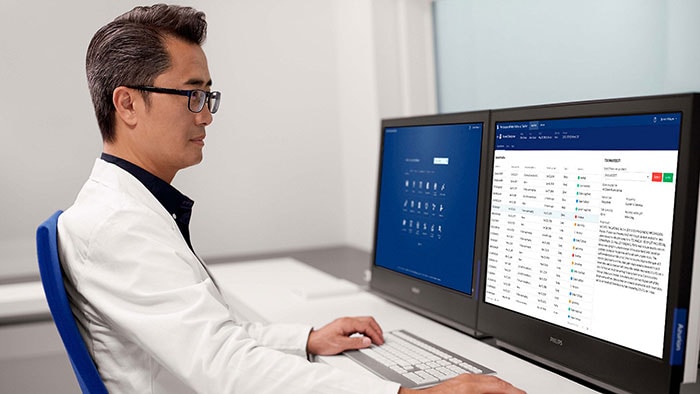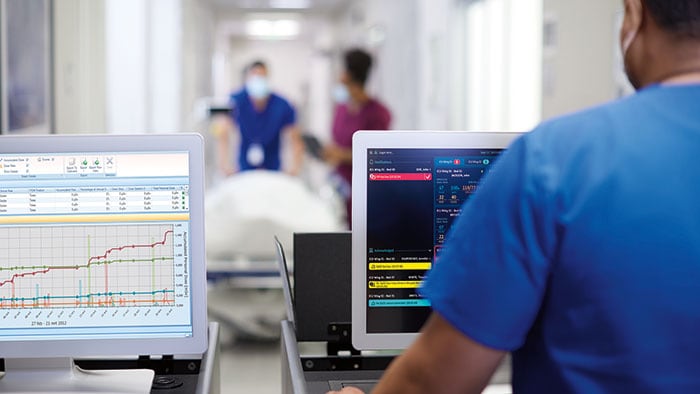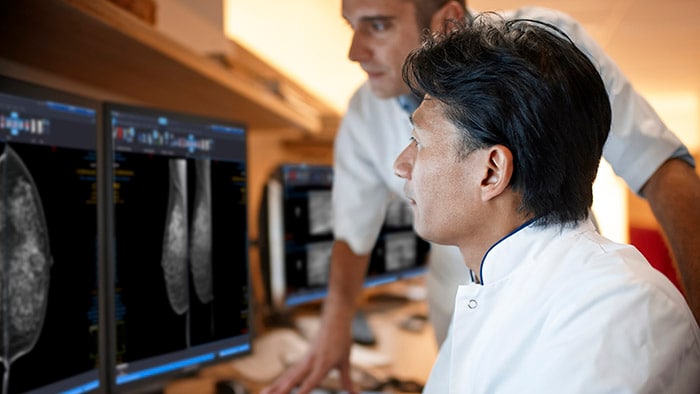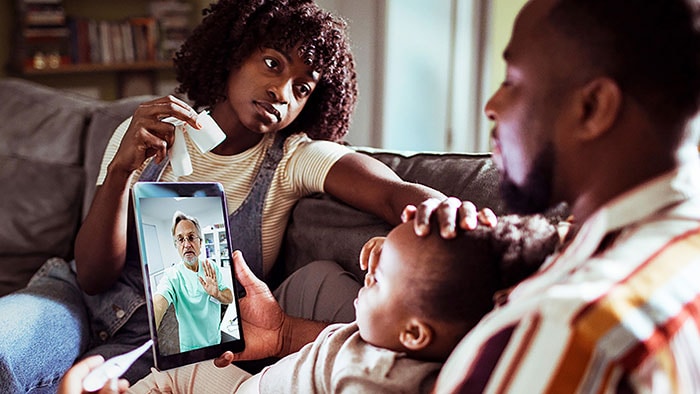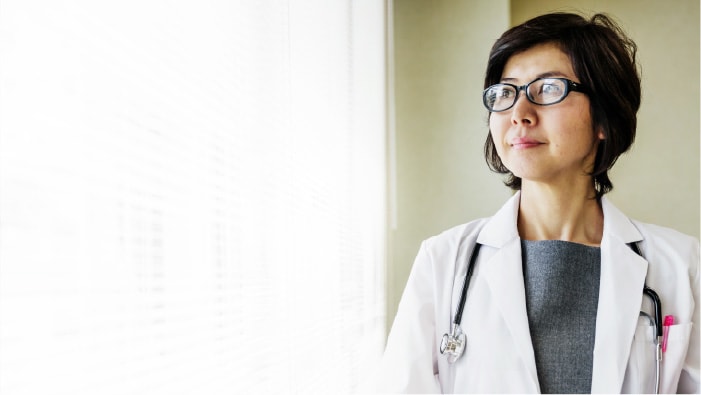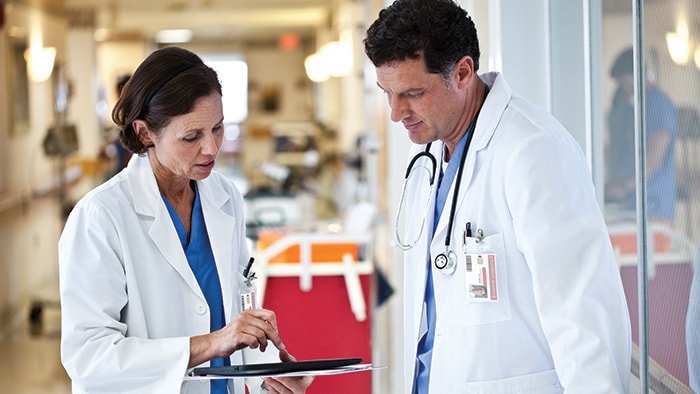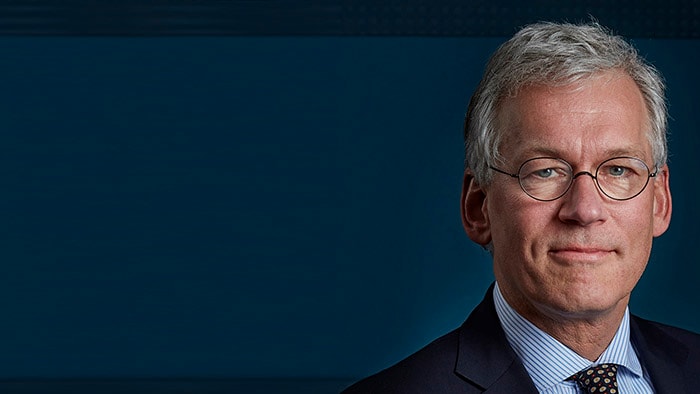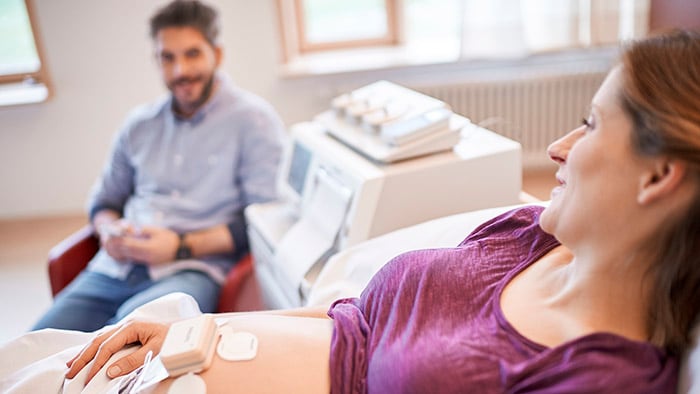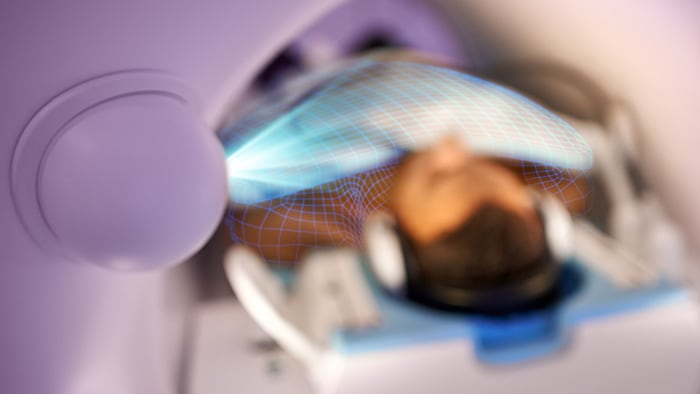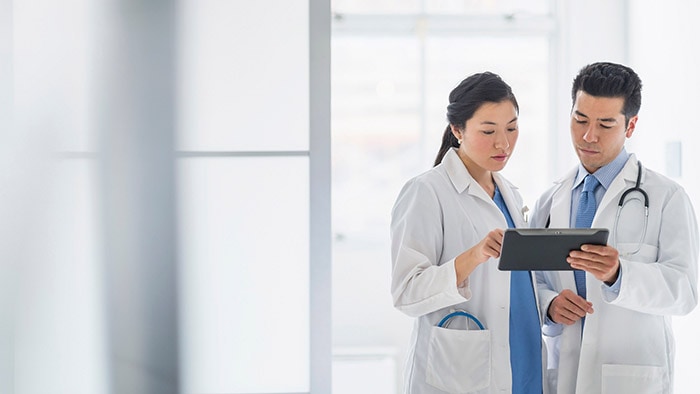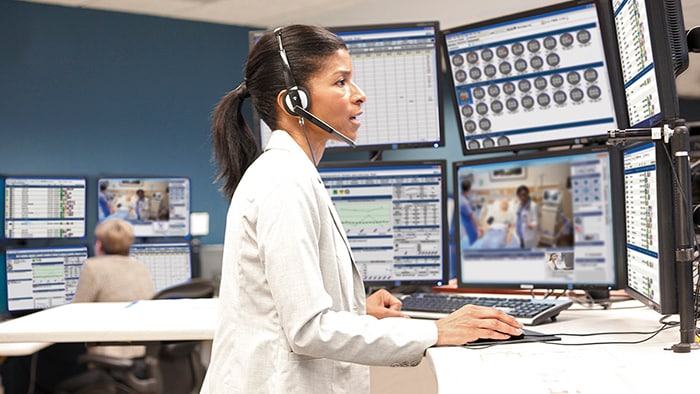Our interconnected world
With the COVID-19 pandemic spreading across the world, our world is changing faster – and in more ways – than we could have ever imagined. With social and economic disruption on a scale rarely seen since the end of WWII 75 years ago, the crisis is also forcing us to completely rethink the notion of ‘business as usual’. As some countries slowly start to emerge from the first acute phase of the pandemic, the COVID-19 crisis is substantially shifting people’s thinking. Human health and healthcare in general have rightly become the number one priority for global leaders. A healthy planet remains fundamental to all our endeavors to make the world healthier and more sustainable. More than ever before, COVID-19 is making it painfully clear just how interconnected social, economic and environmental challenges are. The World Economic Forum emphasizes this in their latest Global Risks report. For the first time, the global top-five risks in terms of likelihood are all related to the environment. And many other studies zoom in on the huge impact the changing climate is having on people: first research from Harvard University indicates that people living in more polluted regions are being hit more severely by the coronavirus than others. While another study published in medical journal The Lancet predicts that 500,000 adults will die as a result of climate change by 2050. As Mark Carney, former Governor of the Bank of England, recently said, “We can't self-isolate from climate change.”
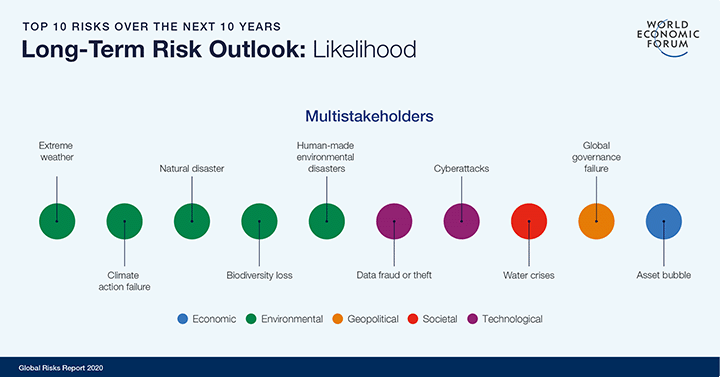
Fortunately, the general understanding that climate and people’s health are deeply and directly connected is growing, and both topics require our serious attention and action. The COVID-19 crisis is highlighting the interconnectedness of our world. It is also forcing us to acknowledge the immediate need to better prepare our people – especially the most vulnerable – and our planet for the intertwined healthcare and climate change risks. On the upside, it has shown us that a large-scale, comprehensive response to a global crisis is possible, when we all commit to it. It’s the only way to withstand and manage a future unprecedented health and climate crisis.
Shifting mindset creating momentum for climate action
With society already demanding that we – governments, industries, global businesses –address sustainability with urgency, the substantial shift brought on by the COVID-19 crisis may well be laying the ground for the radical changes required, as we look to re-build our economies on a global scale. According to the World Economic Forum, what happens in the upcoming months could go one of two ways. There is a risk that as the immediate crisis wanes and its economic consequences become clearer, we set aside longer-term aspirations in pursuit of short-term, easy fixes. The climate, but also a circular economy, may well become less of a priority for stakeholders, customers and industry as a whole, as they focus on re-booting the economy in the short term. From experience, we know that the temporary drop in CO₂ emissions during the last global financial crisis in 2008 was short-lived and that CO₂ emissions will rise again when the crisis ends. At the same time, important milestones in climate negotiations may well be delayed. And, in the event of an economic recession, it is likely that funds reserved for investments in sustainability will diverted to other projects. But there is another possibility. With scientists warning that we have 10 years left to avoid the worst consequences of climate change, this could offer an opportunity to tackle the issue head-on. COVID-19 is showing us that we have the technology, scientific understanding, financial means and human resourcefulness needed to tackle climate change. This may well be our only chance to ‘re-build’ and work on an economy that both looks after people and considers the limitations of our world. With so many tools available to us to make advances on climate change, what we need first and foremost is leadership and the political will to apply them.
Learn & act fast: sustainable development with people as top priority
At a time when governments are agreeing to economic stimulus packages to help people and organizations survive the likely recession, it’s our job – as global businesses and industries – to make sure that sustainability and climate action are embedded in these packages. We need to step up and work as one to realize this, just as we are currently doing in our fight against COVID-19. Together, we can ensure these key topics remain high on the agenda of national and international institutions, along with accessible healthcare. For example, EU tendering rules have been adapted to include total cost of ownership, but this is still not broadly understood or applied by national or regional governments, let alone municipalities. They still procure based on lowest initial cost, regardless of the environmental impact. If we can collaborate and make sustainability a key requirement to win tenders, this will support the economy and the environment at the same time. Other examples of green stimulus could be a European alignment on chemical, product and waste legislation to increase recycling and the development of ‘green products’, and the promotion of circular ownership models to consumers. The need to team up is widely recognized and was also emphasized in a recent Oxford survey among financial and economic experts in G20 countries, which highlighted that climate impact potential is one of the most important dimensions of fiscal recovery packages. At the same time, other research clearly shows that countries with an active long-term strategy for approaching global warming targets will be economically and financially better off than others. As a global business, Philips focuses on the development of sustainable innovation that can help improve the quality of care and expand access to care to underserved communities, while taking our planet into account. This means realizing energy savings, minimizing resource use wherever possible, increasing the use of recycled materials in our products, etc. We advocate partnerships and close collaboration with our industry peers – in both the private and public sectors – to stimulate learning and organize change. It enables us to speed up and scale new technologies – and their adoption across the globe. Philips’ sustainability targets have always been progressive, and it is our duty to share our experience and knowledge, demonstrating that investments in people and our planet are good for business. This is also emphasized by Frans Timmermans, Executive Vice President of the European Commission, who was recently quoted saying: “We have to invest in a new economy to come out of this crisis in a better shape compared to how we went into it; ready for the future, sustainable, inclusive, competitive and well prepared […] because it is more profitable to protect the environment than to destroy it. This could just be our best chance to do this.”
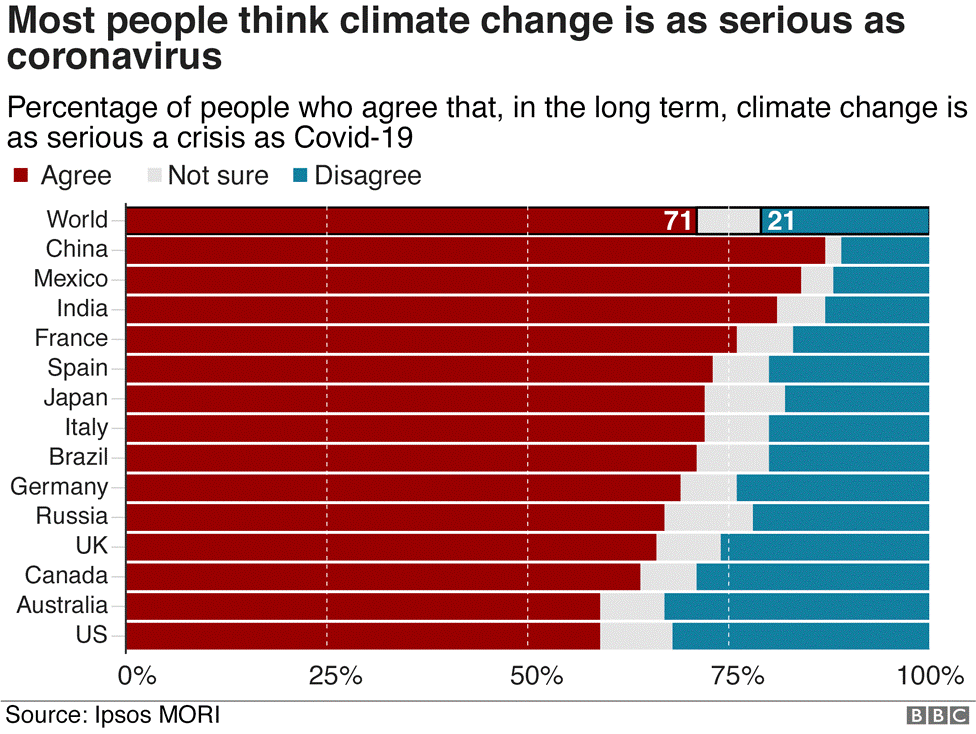
Building resilience and inclusion for a sustainable future
These are challenging times. But challenges are the mother of invention. I am experiencing – and with me hopefully many others – that this crisis presents an opportunity to pause, reflect, and improve. Our understanding on how to flatten the COVID-19 curve is growing every day. At the same time, we are respecting new boundaries and norms with regard to social distancing. Let’s apply these learnings to drive climate action: ‘flattening the emission curve’ and realizing a substantial carbon reduction to achieve the global 1.5 °C temperature rise target, as all nations agreed to in Paris. It is my sincere hope and wish that we all grasp the need to do things differently this time. And that, going forward, we base our economic and financial measures on this shared and integrated understanding, while driving practical initiatives on a global scale. So we can build more resilient and inclusive economies based on regenerative use of resources and fair distribution of the created shared value. And so we are better prepared for the next challenges this century brings us. Caring for our earth and caring for our communities go hand in hand. As part of our mission, we have an ambitious goal to improve the lives of 2.5 billion people a year by 2030, while acting responsibly towards our planet. Click here to learn more about how Philips is working towards a stronger healthcare system in the U.S. and globally, with increased access to care for all, no matter where you live.

Share on social media
Topics
Author
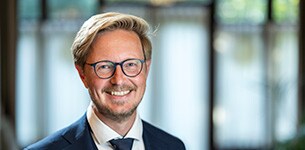
Robert Metzke
Philips Global Head of Sustainability Mr. Metzke leads Philips’ activities in Sustainability where he drives the company’s strategy towards innovative, sustainable business models and embedding sustainable and circular ways of working across Philips. In particular, Robert and his team are leading all activities with regards to Philips' environmental responsibility, with a focus on climate action, circular economy and expanding access to healthcare in underserved communities, as part of Philips overall purpose to improve people's health and well-being. Before joining Philips, Mr. Metzke worked at McKinsey & Company as a consultant where he gained 5 years of experience in strategy and innovation in the high-tech, healthcare and public sectors. Mr. Metzke has a background in journalism, science publishing (Science/ AAAS) and academic research (physics). He is married, has three children and lives in the Netherlands.
Follow me on
